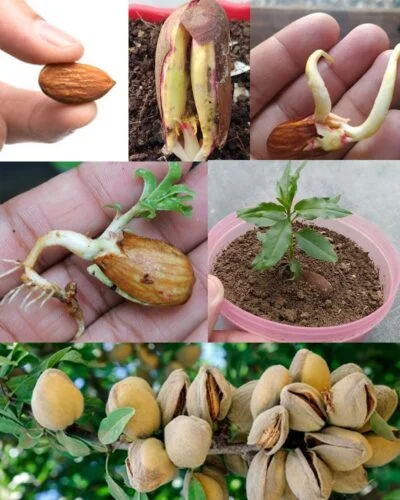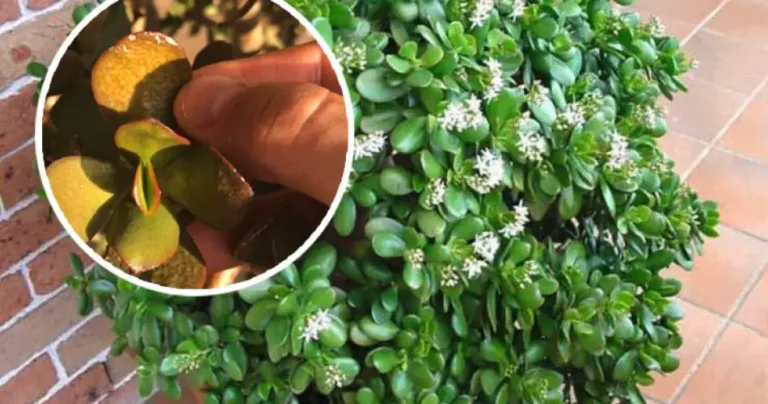How to Grow an Almond Tree from Seed at Home
Step 1: Getting Almond Seeds
- Seed Selection: Choose high quality, raw, fresh and unprocessed almonds. You can use almonds directly from another tree or buy them raw, unprocessed and untreated.
- Stratification: Almond seeds must be stratified (subjected to a cold treatment) to promote germination. To do this, soak the almonds in water for 48 hours, then wrap them in a damp towel, place them in a plastic bag and place them in the refrigerator for a few weeks.
Step 2: Plant the Seed
- When to Plant: Spring is the best time to plant almond seeds.
- Soil Preparation: Almond trees prefer well-drained soil with a pH level of around 6-7.5. Enrich your planting area with compost.
- Planting Depth: Plant the seeds 5-8 centimeters deep in the soil and water them abundantly.
- Location: Choose a sunny location, as almond trees require full sunlight to thrive.
Step 3: Care of your Almond Tree
- Watering: While the tree is young, make sure it receives water regularly, especially during dry periods. Mature trees are fairly drought tolerant, but will produce better with consistent watering.
- Pruning: In the early years, focusing on developing a strong, healthy structure for the tree. In subsequent years, prune to encourage sunlight and air circulation, which can minimize the risk of disease.
- Fertilization: Use a balanced fertilizer to feed the tree, especially during the growing season.
Step 4: Protect the Tree
- Pests and Diseases: Be on the lookout for common pests like aphids and diseases like fungal infections. Apply preventative and curative measures as needed.
- Winter Protection: Young almond trees may need protection during harsh winters. Using mulch and protective wraps can help preserve them from cold winds and extreme cold.






